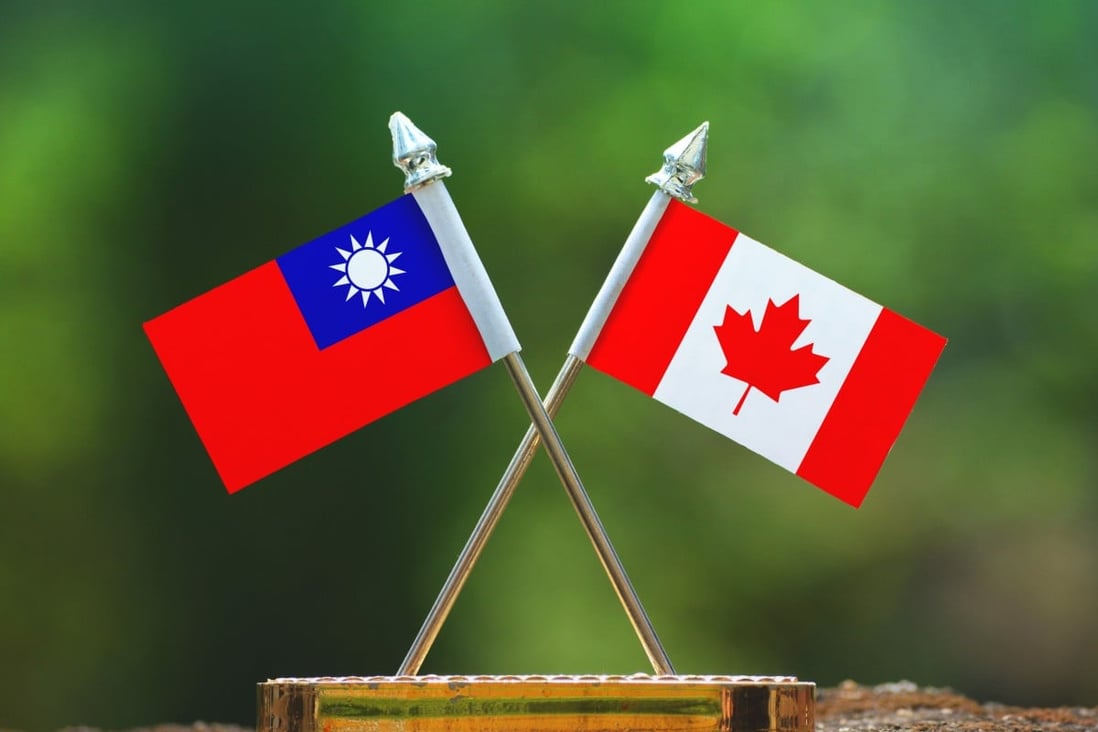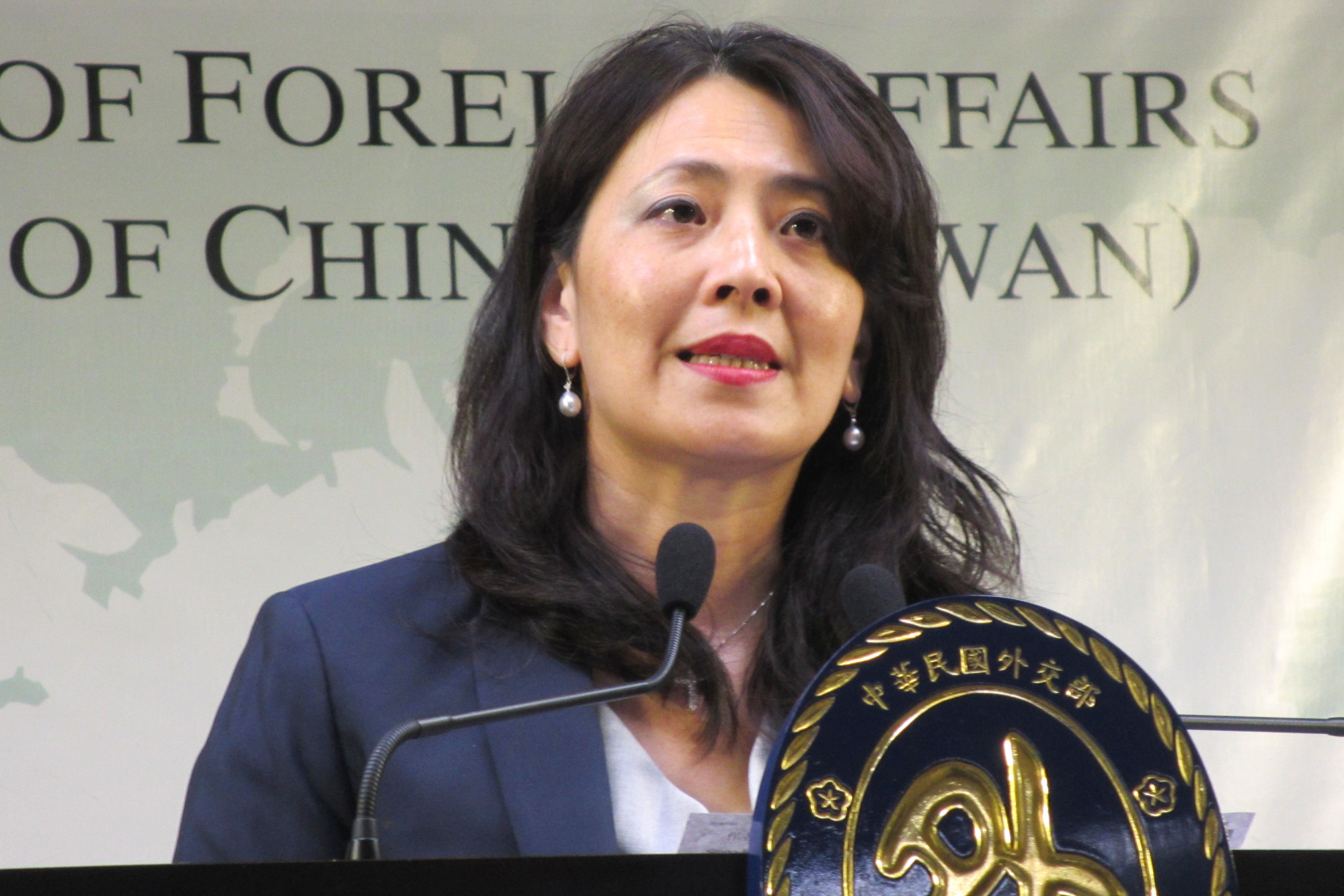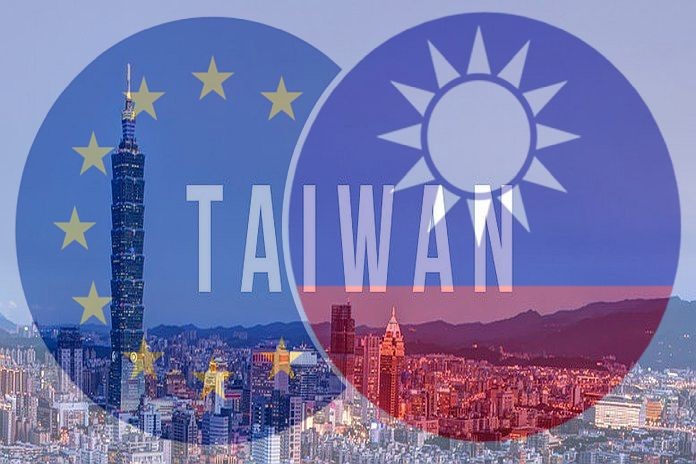
Taiwan ‘under way’ to open representative office in Montreal
- The self-ruled island has a de facto embassy in Ottawa and two other offices in Canada – in Vancouver and Toronto
- It comes after Ottawa released its Indo-Pacific strategy last month, calling Beijing an ‘increasingly disruptive global power’
Taiwan will open a representative office in Montreal, as concerns about Beijing’s rise prompt countries like Canada and those in Europe to embrace the self-ruled island as part of strategies to counter mainland China.
Announcing the move on Tuesday, the island’s foreign ministry said Taiwan and Canada “enjoy increasingly close exchanges across a wide range of domains”.
“After extensive research, the government of Taiwan has decided to establish the Taipei Economic and Cultural Office, Montreal,” foreign ministry spokeswoman Joanne Ou told reporters in Taipei.
Ou said preparations to open the office in Montreal, Quebec province, were “currently under way” and it would give impetus to further cooperation between the two sides.
While Taiwan does not have formal ties with Canada – it recognises Beijing diplomatically – the island has a de facto embassy in Ottawa and two other representative offices in the country, in Vancouver and Toronto.
Canada is among nations that view mainland China as a growing threat – its long-awaited Indo-Pacific strategy, launched in late November, calls Beijing as an “increasingly disruptive global power”.
“China is making large-scale investments to establish its economic influence, diplomatic impact, offensive military capabilities and advanced technologies,” the strategy document says.
“China is looking to shape the international order into a more permissive environment for interests and values that increasingly depart from ours.”
According to the strategy, Canada needs to be “clear-eyed” about Beijing’s objectives in the Indo-Pacific.
It promises to invest resources in deepening engagement with free and democratic partners in the region, including Taiwan, and says Canada will oppose unilateral actions that threaten the status quo in the Taiwan Strait.

Taiwan’s foreign ministry said the two sides “enjoy increasingly close exchanges across a wide range of domains”
Taiwan will open a representative office in Montreal, as concerns about Beijing’s rise prompt countries like Canada and those in Europe to embrace the self-ruled island as part of strategies to counter mainland China.
Announcing the move on Tuesday, the island’s foreign ministry said Taiwan and Canada “enjoy increasingly close exchanges across a wide range of domains”.
“After extensive research, the government of Taiwan has decided to establish the Taipei Economic and Cultural Office, Montreal,” foreign ministry spokeswoman Joanne Ou told reporters in Taipei.
Foreign ministry spokeswoman Joanne Ou says the new office will boost cooperation. Photo: Handout
Foreign ministry spokeswoman Joanne Ou says the new office will boost cooperation. Photo: Handout
Ou said preparations to open the office in Montreal, Quebec province, were “currently under way” and it would give impetus to further cooperation between the two sides.
While Taiwan does not have formal ties with Canada – it recognises Beijing diplomatically – the island has a de facto embassy in Ottawa and two other representative offices in the country, in Vancouver and Toronto.
Canada is among nations that view mainland China as a growing threat – its long-awaited Indo-Pacific strategy, launched in late November, calls Beijing as an “increasingly disruptive global power”.
“China is making large-scale investments to establish its economic influence, diplomatic impact, offensive military capabilities and advanced technologies,” the strategy document says.
“China is looking to shape the international order into a more permissive environment for interests and values that increasingly depart from ours.”
According to the strategy, Canada needs to be “clear-eyed” about Beijing’s objectives in the Indo-Pacific.
It promises to invest resources in deepening engagement with free and democratic partners in the region, including Taiwan, and says Canada will oppose unilateral actions that threaten the status quo in the Taiwan Strait.
Mainland China and Taiwan split in 1949 at the end of a civil war when the Kuomintang was defeated by Communist Party forces and fled to Taipei. Beijing sees the island as part of China and has never ruled out the use of force to take control of it.
Most countries, including Canada, do not recognise Taiwan as an independent state but oppose any attempt to take the island by force.
Meanwhile, in the latest sign of a deepening partnership between the island and Europe, a delegation from the European Parliament’s Committee on International Trade met Taiwanese President Tsai Ing-wen at her office in Taipei on Tuesday to exchange views on further cooperation.
Tsai told the group, led by Anna-Michelle Asimakopoulou, that Taiwan and the European Union should build a “resilient democratic alliance”.
“Taiwan seeks to boost bilateral economic and trade exchanges, enhance supply chain security and accelerate progress on the Taiwan-EU bilateral investment agreement, which would instil confidence in businesses on both sides to expand investments,” she said. The EU included Taiwan on its list of trade partners for a potential bilateral investment agreement in 2015, but it has not held talks with Taiwan on the issue since.
The EU included Taiwan on its list of trade partners for a potential bilateral investment agreement in 2015, but it has not held talks with Taiwan on the issue since.
Asimakopoulou said the EU recognised that its partnership in trade and investment with Taiwan was a “strategic relationship with geopolitical implications”.
“My colleagues and I in the European Parliament have called on the [European] Commission to launch without delay an impact assessment, a public consultation and a scoping exercise for the bilateral investment agreement between the EU and Taiwan,” she said.
In a joint letter to the European Commission in September, a 35-strong cross-party group of European lawmakers urged the EU to begin talks to strike a deal with the island, which is the largest source of investment in Europe.
“We are writing to urge you to make haste with the EU-Taiwan bilateral investment agreement,” wrote the lawmakers, who belong to the Inter-Parliamentary Alliance on China.
Calls for a closer EU-Taiwan partnership have grown as criticism of Beijing’s authoritarian and repressive regime intensifies across the continent.
Relations between Brussels and Beijing reached an all-time low last year when the Chinese mainland blacklisted some European lawmakers in retaliation for Western sanctions.




No comments:
Post a Comment
Note: Only a member of this blog may post a comment.